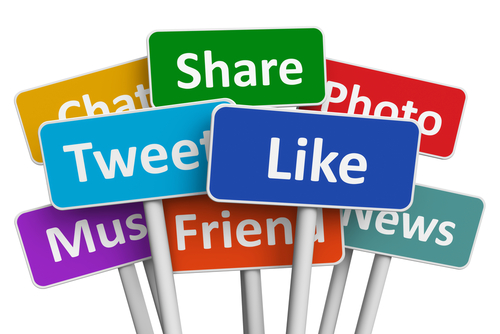
The Impact Of Social Media On Marketing
Imagine yourself at a large party. It is a networking function, designed to foster new connections and meet like-minded people. Do you sit in your chair all night, never mingling with the other guests? We would likely all answer “no.” That’s not the reason why you are there and it’s not how connections get built.
The basics of meeting and forming relationships in real life are the exact same in the world of social media. In order to get noticed, you have to show up and talk to people. Why wouldn’t the same apply to social media?
Although the word engagement gets tossed around a lot, many people are still unclear about what it means, how to do it, and why it’s so important. By the end of this article, you will have a clear understanding of all three of these things.
What is Engagement?
In Altimeter’s “State of Social Business 2013” report, only 52% of the companies surveyed said their executives are knowledgeable about enterprise social strategy and a mere 17% described themselves as “strategic” with their social strategies.
Clearly, there is a problem and it must be fixed! Social media is the lifeline of a brand and effectiveness starts with a good foundation. Until brands know what engagement is, they won’t be able to do anything with it.
Engagement in its simplest form is when people interact with your content online – the likes, shares, favorites, retweets, and comments. It sounds easy, but if you’ve been on social media for any length of time, you know that actually garnering this engagement is quite the opposite.
Let’s continue climbing the mountain of engagement by determining if it is even necessary and if so, why.
Why Do You Need Engagement?
If getting engagement is so difficult, isn’t it okay to just forget about it for awhile, at least until you become more established as a brand? Unfortunately, no. Even for brands that are just starting out, engagement is something to be worked at daily, right from the get-go.
Engaging with your audience is one of the best ways to strengthen their trust in you. The more you come across as human and present an emotional connection, they more likely they are to want to engage with you. From there, the circle continues. As you engage back, trust levels grow deeper.
To return to the party illustration, you meet and connect with people by talking to them, learning what they care about, and finding common ground that you can both relate to. Now apply this to the online world. Sure, it’s hard getting heard in such an overcrowded environment, but when you work at it, you’ll be surprised at how quickly people begin regularly engaging with your content.
The shy guy in the corner of the room is easily overlooked. Although it’s harsh to admit, most people are so bent on furthering themselves and building their own connections that they have no time to reach out to someone who isn’t offering anything in return.
Again, this is also true of social media. If your brand doesn’t give anything to its audience, it’s not likely that it is going to get anything either. Social media engagement is a two-way street – you can’t expect your audience to come calling every time you post content.
I’m sure you see where this is going next. If your audience isn’t the one doing all the work (wouldn’t that be nice?), then what’s a brand to do?
How Do You Effectively Engage?
We’ve made it to the last, and most important, piece of the puzzle. I can engage all day long, but if my strategy is weak or I don’t know what I’m doing, then it’s all for naught.
Building your online presence through engagement will soon turn into one of the most frustrating parts of your job if you don’t have a clear plan of attack. Spending hours liking posts on Facebook and resharing tweets without seeing any growth on your profiles is an all too common tale and is a large reason why so many people just give up.
Anytime you start engaging, remember that you’re talking to real people. Emotions drive much of how people react to what you share on your social profiles, so if you want to gain traction and engagement, share things that will elicit emotions from your audience.
If your brand is new to the social media scene, consider the 80-20 rule – this rules helps you grow your brand through social media while giving your audience something to engage with. 80% of your shared content should be general, things like beautiful pictures, an inspiring quote, or funny memes. The remaining 20% should then be content related to your industry.
The fact of the matter is that fans are not going to stick around your page, much less engage, if they’re not interested in what you are sharing. And until you build their trust and develop a human connection, they won’t care about your industry-related content.
Always relate to your audience on a personal level. When you start seeing them as dollar signs who exist merely to contribute to your company’s net worth, you miss the purpose of social media.
Engagement also takes time. The process of engagement is similar to building a friendship with someone in real life. Friendships start slowly and developing them is a process. This is true of social media, as well. Equipped with the mindset that engagement won’t happen automatically, the whole process becomes much more manageable and allows you to look at the big picture.
At the end of the day, people are still people, even online. Emotional ties are universal and capitalizing on these emotions will take you far in social media. Because remember, without an audience, you’re just talking to thin air.
Latest posts by Marcela De Vivo (see all)
- The Evolution of Data: Creating Intent-Led Digital Strategies - 29 January, 2019
- Productive Things To Do When You Are a Freelancer Job-Hunting - 18 July, 2018
- What KPIs Should I be Using to Measure my SEO Campaign - 21 July, 2017



